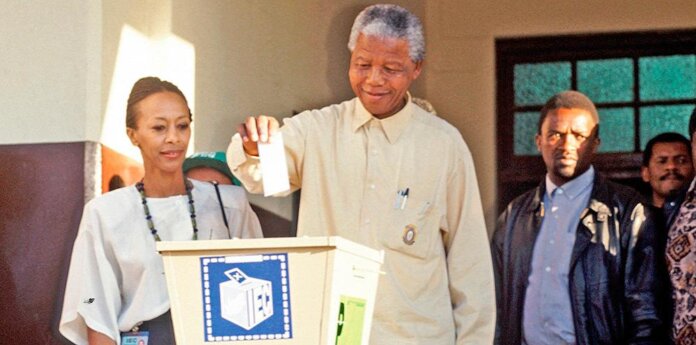In the rural communities of Alfred Nzo and the broader OR Tambo district municipality, life can often feel like an uphill battle. High rates of unemployment, inadequate service delivery, lack of running water, poor infrastructure, and alarming levels of gender-based violence and crime paint a bleak picture for residents. In the face of such adversity, it’s understandable that many may question the value of casting their vote. After all, why participate in a system that seems to neglect their needs until election time rolls around?
However, despite the frustrations and disillusionment with the current state of affairs, it’s essential to recognize the inherent power of the ballot. While it’s true that political leaders may only pay attention to rural communities when seeking votes, it’s crucial to understand that voting is not just about the candidates or parties vying for office. It’s about exercising our fundamental democratic right and holding those in power accountable for their actions—or lack thereof.
At its core, democracy hinges on the principle of representation. By participating in the electoral process, individuals from rural areas like Lusikisiki, Mbizana, Ntabankulu, Mount Frere, Qumbu, Tsolo, Mthatha, Mount Ayliff, Libode, Port St. Johns, and their surroundings have the opportunity to have their voices heard. Each vote is a voice, a chance to shape the future of our nation and communities.
While it’s understandable to feel disheartened by the failure of elected officials to deliver on their promises, abstaining from voting only perpetuates the cycle of neglect and marginalization. By not participating, we relinquish our power to effect change and allow those in power to continue unchallenged.
Moreover, voting is not just about choosing the perfect candidate or party; it’s about selecting the best available option. While no political party is flawless, engaging in the electoral process allows us to assess the policies, track records, and commitments of various candidates and parties and make informed decisions based on our values and priorities.
Furthermore, voting serves as a catalyst for broader societal change. It sends a message to those in power that rural communities will not be ignored or taken for granted. It signals our collective demand for accountability, transparency, and inclusive governance.
It’s important to acknowledge the systemic barriers that hinder participation in the electoral process, such as lack of access to information, voter education, and logistical challenges. However, overcoming these obstacles requires collective action and advocacy, not apathy or resignation.
In the face of adversity, voting is an act of resilience, empowerment, and hope. It’s a tangible expression of our belief in the democratic ideals of equality, justice, and representation. As challenging as it may seem, our voices matter, our votes count, and our participation can make a difference.
So, to the residents of rural South Africa, I urge you not to succumb to despair or disillusionment. Instead, let us reclaim our power, demand accountability, and shape the future of our nation through the ballot box. Our voices matter, our votes are powerful, and together, we can build a brighter tomorrow for all.
Subscribe Now for Exclusive Weekly Updates!
Enter your details below and be part of our community, unlocking premium content delivered to your inbox.








